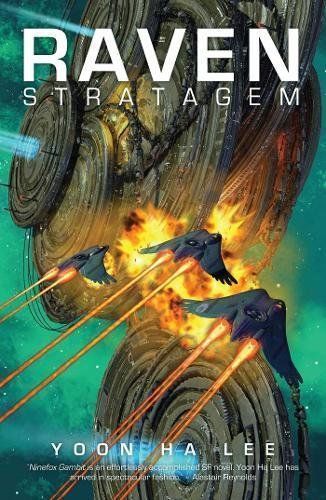
Raven Stratagem
Captain Kel Cheris is possessed by a long-dead traitor general. Together they must face the rivalries of the hexarchate and a potentially devastating invasion. When the hexarchate's gifted young captain Kel Cheris summoned the ghost of the long-dead General Shuos Jedao to help her put down a rebellion, she didn't reckon on his breaking free of centuries of imprisonment – and possessing her. Even worse, the enemy Hafn are invading, and Jedao takes over General Kel Khiruev's fleet, which was tasked with stopping them. Only one of Khiruev's subordinates, Lieutenant Colonel Kel Brezan, seems to be able to resist the influence of the brilliant but psychotic Jedao. Jedao claims to be interested in defending the hexarchate, but can Khiruev or Brezan trust him? For that matter, will the hexarchate's masters wipe out the entire fleet to destroy the rogue general?
Reviews
altlovesbooks@altlovesbooks
Didi Chanoch@didichanoch
Liza @lazer
Sheila@duchess
Eva@evamaren
bluepython508@bluepython508
Greg Copeland@gtco
Scott Robertson@spr
Sang Park@sparky
Kevin Finlayson@kevinfinlayson
Laura@lauragh
Natalie@gigameow
Phileas Fogg@phileas
Mundy Otto Reimer@mundyreimer
Vikram Sreekanti@vikrams
Marsh Wu@narrativore
Benjamin@ben729
Maggie Delano@maggiedelano
Kaitee Tredway@kaiteeyaeko
Remi Damours@galgalimeyes
Micchi von Cross@micchisaurus
Margot Stuit@rachelfrouwkje
Christian-Rolf Grün@kixx
Steve Barnett@maxbarners